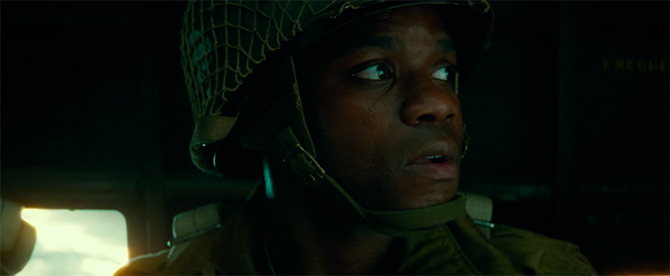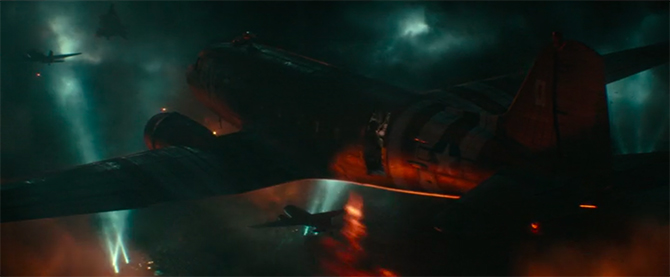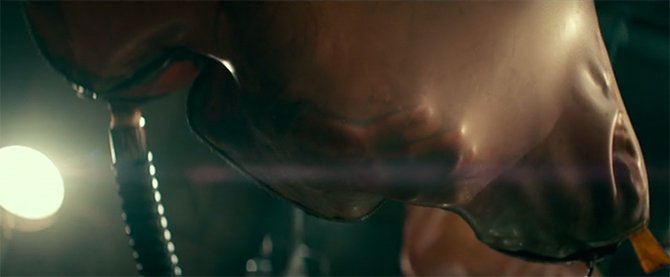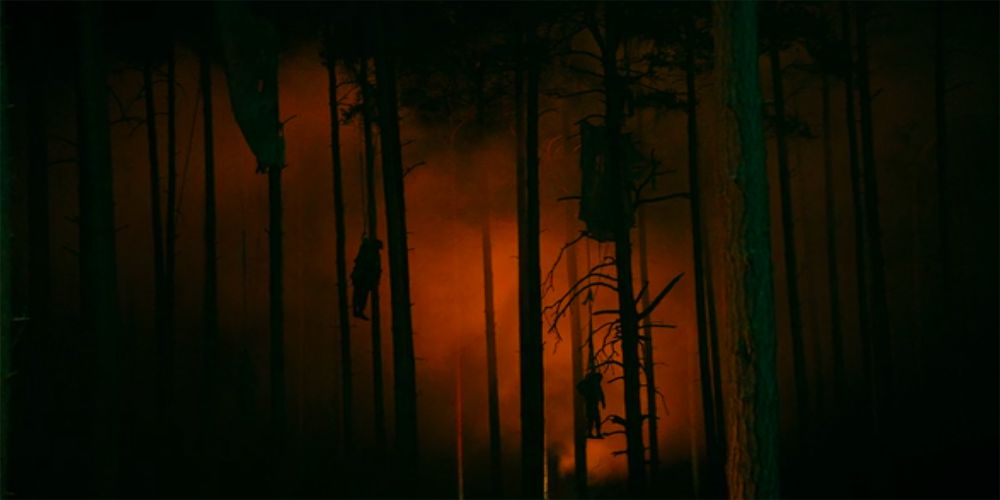Overlord is going to be one of those films that I have very mixed feelings over.
A cross-genre movie that blends action with straight-up horror, Overlord originally saw a domestic release in 2018 before being brought to Netflix—and a wider audience—in 2019. It was directed by Julius Avery with production by J.J. Abrams and Lindsey Weber.
The film takes place during the later years of WW2, when a group of American paratroopers are dropped behind enemy lines in order to knock out a radio tower and help secure the beaches for the D-Day invasion of Normandy.
While rendezvousing in an occupied town, they discover that there's a lab beneath this tower, where the Nazis are conducting horrific human experiments. From there it's a race against time to complete their mission, while simultaneously shutting down the lab: its findings pose an existential threat to humanity.
Overall, Overlord is a lush, aesthetically driven movie: the tension and the pacing were phenomenal. But in the current era of political strife, I have some lingering doubts over how it treats its more serious subject matter.
The Good

There are definitely some good aspects about this film that need to be mentioned. Overlord practically oozes aesthetic (in a very literal sense) through its use of a cohesive visual design.
You could easily make a case that its inspiration harkens back to older video games like Wolfenstein and the Resident Evil series, mingled with more modern callouts to Tarantino's Inglourious Basterds.
All of these elements are wrapped up in a well-thought out package that presents the audience with an engaging end-goal.

Overlord is incredibly gory, but it's a "pretty" sort of gore: an odd combination of realism and hyper-stylization. On a personal level I really enjoyed this mix of horror and a WW2 action flick. There's something inherently devastating about war to begin with, and in particular what the Nazis were doing.
The opening sequence where Private Boyce drops down into Normandy via a burning plane was a standout. It's a scene I've seen many times before in various war movies, but few have managed to convey how terrifying it is.
Essentially, think of Overlord like Indiana Jones and the Raiders of the Lost Ark, but on steroids: much darker and ten times gorier. That's the film.
The Bad

When it comes down to it, my mixed feelings stem from the "appropriateness" of Overlord's subtext and what it's trying to say: not its visuals or its technical expertise.
Overlord feels like a video game: 100%, absolutely a video game, complete with zombies and dungeon crawls and Nazis for the good guys to beat up. I really like it when this sort of video game aesthetic is done so skillfully, but the subject matter that Overlord is dealing with is Nazi medical experimentation.
When you combine this real-life horror with the almost cartoonish portrayal of the Nazis in Overlord, it feels like it cheapens the severity of it. Maybe the topic of medical experimentation should be treated with more gravitas, but I honestly can't say for sure—just that I feel conflicted over it.
Less concerning but more annoying was how Overlord's supernatural elements were severely downplayed. The blurb led me to believe that the purpose of these experiments was supernatural in origin: this would have fit into the Nazi's real-world obsession with occultism during that era.
Instead, those supernatural elements were relegated to a couple lines spoken by one of the characters—at best. I would have rather that they be taken out of the film entirely if they were going to have so little impact.
The Verdict
There's some interesting history surrounding Overlord, in that it was allegedly the fourth installment in the Cloverfield franchise overseen by J.J. Abrams. This rumor was later denied by Abrams himself, according to Variety.

